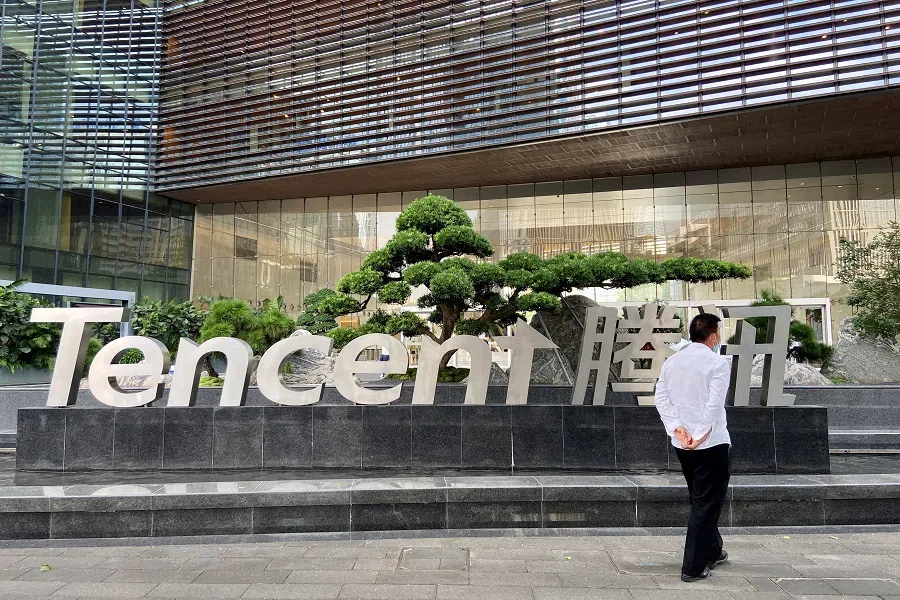How Chinese companies are going through a fight for survival
For Chinese companies trying to survive in terms of investments and market share, innovation and bold moves will be required, says Chinese academic Zhang Tiankan.

Currently, not only are enterprises and industries feeling lost in achieving success, even the top management is also asking: why is there a decline in Chinese unicorn companies?
Huge decline in new unicorns and top companies
Unicorns are private companies under ten years old with valuations exceeding US$1 billion. Such enterprises will be the primary focus of future market development, with substantial scale and core competitiveness. Based on Hurun Report’s Global Unicorn Index 2023, although China ranked second globally with 316 unicorns in 2023, only 15 new unicorns were added in the past year, compared with 40 in 2022 and 156 in 2018. In 2023, there were 179 new unicorns in the US; over 500 new unicorns emerged globally last year, an average of nearly ten per week.
Not only is the number of new unicorns on the decline, but Tencent is the only Chinese enterprise left on the list of top 20 listed companies worldwide. Between 2016 and 2019, four or five Chinese companies were within the world’s top 20 corporate giants, with Tencent and Alibaba firmly rooted among the top ten. These realities highlight that top Chinese companies are slowing down, and other large- and medium-sized companies are even lagging far behind global conglomerates.
China occasionally implements some contractionary policies that deter companies from developing. In the end, everyone becomes more keen to play it safe and avoid investing in risky fields. — Lu Ming, Director, Shanghai Institute for National Economy, Shanghai Jiao Tong University
A restrictive environment
In the face of reality, many people are reflecting deeply and offering sharp insights that get at the core of the issue. Lu Ming, director of Shanghai Institute for National Economy at Shanghai Jiao Tong University, pointed out that China occasionally implements some contractionary policies that deter companies from developing. In the end, everyone becomes more keen to play it safe and avoid investing in risky fields.

Previously, companies were often reminded to “become bigger and stronger” to grow and survive, but now they are also told to “become better”. However, if the policies are not beneficial or at least lenient, and there are too many rules and regulations to follow, large and small enterprises alike will hesitate to develop further.
It is already fortunate if they are not “lying flat” or merely sticking to the status quo, but more often than not, they face elimination due to fierce competition. And this not only affects unicorns — ordinary enterprises, especially private ones, would be unable to withstand the pressure and be doomed to bankruptcy or closure. Inevitably, fewer people are embarking on this entrepreneurial journey.
Apart from policies, the enterprise’s own survival wisdom is equally important. It is crucial to accurately decide the direction of research and development (R&D) investment and output, and to ensure its sustainability.
Becoming bigger, stronger and better
Looking at the top 20 listed companies worldwide, while it is important to choose sunrise industries such as information technology and healthcare, there is no lack of enterprises engaged in ordinary industries, such as Spanish clothing retailer Bershka, which has already become one of the world’s leading companies since its establishment 26 years ago in 1998. Tesla, the familiar manufacturing giant and the US’s largest electric vehicles and solar panels enterprise, is also firmly among the world’s top 20 leading companies.
Amid the grim situation, there is no lack of Chinese enterprises that have become bigger, stronger and better. The investment, R&D, and product conversion and upgrading of the glass industry prove my point. Since its establishment in 1987, Fuyao Group has focused on automotive glass. Although it is not as high-end as information technology, chips and artificial intelligence, and not as cutting edge as genetics and polymers in the medical industry, its persistence in auto glass has made the company China’s largest and the world’s second-largest auto glass manufacturer after 37 years.
Having been second place for a long time, Xinyi Glass finally surpassed Fuyao Group due to its innovation and capability, and not by “overtaking on the bend” or taking a shortcut.

Yet, there is also fierce competition in glass manufacturing, which thus underscores the critical role of innovation and R&D in determining survival and competitiveness. For example, another glass enterprise, Xinyi Glass, realised that no matter how hard it tried, it can never compete with Fuyao Group in auto glass. Since it cannot become stronger, bigger and better in this area, it has to develop new products. Thus, Xinyi Glass started to look at float glass for architectural use, photovoltaic glass for the new energy field and even bulletproof glass for security purposes.
Such innovation and R&D made the key difference between Xinyi and Fuyao. In 2022, Fuyao Group earned a revenue of 23.603 billion RMB (about US$3.25 billion) and ranked 478th on the Fortune China 500 list. But Xinyi Glass, with its new products, earned a revenue of 25.281 billion RMB, ranking 453rd. Having been second place for a long time, Xinyi Glass finally surpassed Fuyao Group due to its innovation and capability, and not by “overtaking on the bend” or taking a shortcut.
On the other hand, be it unicorns, large enterprises or even ordinary ones, R&D investment is crucial in determining whether an enterprise can become bigger, stronger and better. In China, R&D investment traditionally comes from the government, including the central government, local governments and various universities and research institutes, with less contributions from the enterprises themselves. However, the practices and experiences of the world’s unicorns and corporate giants show that it is the company’s own R&D investment that is the primary engine for growth.
Investing in R&D
In this aspect, Chinese enterprises have already made changes. The 2023 EU Industrial R&D Investment Scoreboard that ranks the world’s top 2,500 companies in terms of R&D investment found that the US leads with 827 companies on the list, six more than in 2021, investing a whopping 526.5 billion euros (US$563.1 billion). China ranked second with 679 companies on the list, one more than in 2021, investing a total of 222 billion euros.
This shows that Chinese enterprises, especially private ones, are not in mourning but are actively pursuing growth. Xinyi Glass and Fuyao Group are clearly among the companies that are investing in their own R&D. This also means that many Chinese private enterprises have realised that business development is like rowing upstream — if you stop advancing, you move backwards — and they are thus striving to seek breakthroughs and innovate.
If everything a business does is orderly and predictable, the business may lack competitiveness.

Equally important to business development is a change in mindset. Chen Zhao, a professor at Fudan University’s School of Economics, recently broke down two seemingly contradictory concepts to remind everyone to change their mindset.
When it comes to the interrelated concepts of the “disorderly expansion of capital” and the “bold development of private enterprises”, some people may reject the former but affirm the latter. However, Chen believes that from the perspective of business operations, as long as it complies with the law and regulations, disorderly expansion is not that different from bold development.
If everything a business does is orderly and predictable, the business may lack competitiveness. It is precisely because of the profit motive that companies try to explore uncharted territory and embark on untrodden paths — that is innovation.
Not disorderly expansion
This perception can also explain why Xinyi Glass, while competing with Fuyao Group, had to explore the unchartered territory of float glass and photovoltaic glass in order to identify breakthrough innovations and become bigger and stronger so that it surpassed Fuyao.
At the same time, this is also not a disorderly expansion against Fuyao and other glass manufacturers. This resembles the platform economy gaining a head start and redistributing and acquiring some of the territory of traditional financial institutions. As long as it complies with the law and regulations, it is not disorderly expansion, but innovative development.
If there are further relaxed and incentivising policies, it will give private enterprises greater confidence. In this regard, some policies have already been announced. The Regulation on the Supervision and Administration of Private Investment Funds, as passed during an executive meeting of the State Council on 16 June 2023 and came into force on 1 September that same year, clearly stipulated that the country gives policy support to venture capital funds, encourages and guides investment in growing and innovative startups, and encourages long-term funds to invest in venture capital funds.
With good policies and a better environment, unicorns and ordinary enterprises alike can further grow and create a bigger pie, thereby aiding in the distribution and sharing across society.
This article was first published in Lianhe Zaobao as “中国企业如何渡过生死劫”.





